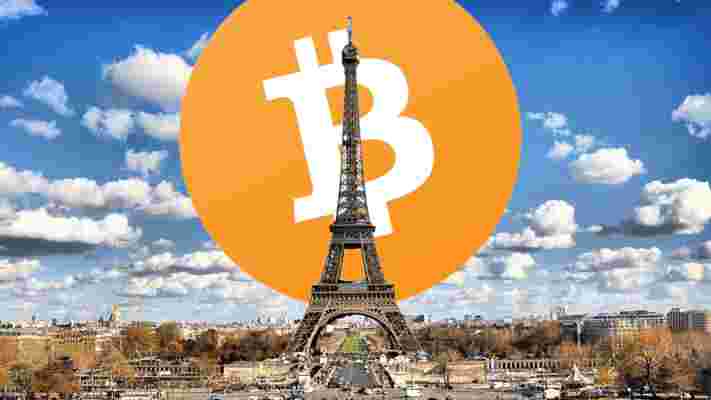Tomorrow, Facebook is expected to release full details of its new “cryptocurrency” project Libra — as always, Twitter has lots to say.

Few concrete facts about Facebook‘s Libra (formally known as GlobalCoin ) have been made public so far. Reports indicate the likes of Mastercard, Visa, Stripe, and PayPal have already paid a $10 million fee to become validators on the network, which allows untapped access to related data.
Facebook‘s rumored goal is to attract 100 companies to join the Libra Association , which would see Zuckerberg and co. net a cool $1 billion right off the bat.
Unlike Libra, Bitcoin is a permissionless system, in which anyone with access to the computational resources required to run a full node (or a mining rig) can join. These are available for purchase for significantly less than $10 million.
We do know Libra will be a “ stablecoin ” pegged to a raft of international fiat currencies to reduce volatility, but the social media giant is yet to formally disclose exactly which ones (or even precisely how its value will be calculated and backed).
Facebook reportedly seeks to make Libra accessible to everyone, and will pitch it as a method of providing the 1.7 billion “unbanked” adults around the world with financial services (a number apparently sourced from a 2017 report published by the Global Findex Database ).
The advent of Libra will place the social media giant within the realm of fintech . Despite it being a stablecoin, some pundits say Facebook’s sheer reach could see it have a negative impact on Bitcoin.
Other Twitter commentators hilariously believe this is all a conspiracy, and it’s really Ripple (XRP) that will power Libra, which seems an impressive exercise in optimism.
Facebook is expected to publish the Libra white paper tomorrow , and could launch a testnet version of its blockchain as early as next week , but it’s clear nobody really knows what will come next.
French government to create ‘ICO white list’ with new regulations
While the world is looking at Facebook’s Libra and its recent senate hearing, France is knuckling down and is set to approve the first wave of cryptocurrency businesses under new legislation.

Under the rules, cryptocurrency-related firms will voluntarily abide by a regulatory framework that requires them to pay tax, provide consumer protection, and meet capital requirements, Reuters reports . Authorities will implement regulations later this month.
Firms that follow France‘s rules will receive approval from the country’s Financial Markets Authority (AMF), and will effectively be white listed.
“We are in talks with three or four candidates for initial coin offerings (ICOs),” executive director for legal affairs at France’s Financial Markets Authority, Anne Marechal, told Reuters.
The AMF is also reportedly in talks with many other cryptocurrency exchange platforms, custodians, and fund managers – so more could be on their way.
France‘s rules for cryptocurrency and ICO-backed businesses became official earlier this year after the PACTE (Action Plan for Business Growth and Transformation) was adopted by the country’s National Assembly in April.
Indeed, these ICOs and new businesses won’t be your typical unregulated affairs that were seen in the boom of 2017/2018. Consumers in particular, will receive more protection over their investments under the new rules.
Cryptocurrency businesses operating under the legislation will have to be legally registered in France, provide an investor prospectus, safeguard any assets offered, and comply with anti-money laundering and terrorist financing rules.
France is one of the more progressive nations when it comes to tackling cryptocurrency regulatory issues and is seemingly never afraid of getting stuck in.
The country recently flexed its position in the G7 (Group of Seven) body to create a new task force to explore how central banks can make sure cryptocurrencies adhere to money-laundering and consumer protection rules.
Saudi Arabia and UAE confirm joint cryptocurrency trial
Saudi Arabia’s and the United Arab Emirates’ (UAB) central banks have teamed up to test a new cryptocurrency.

The Saudi Arabian Monetary Authority (SAMA) and the Central Bank of the UAE confirmed the news in a joint statement released today.
The proof-of-concept will see the two nations trial Aber, a digital currency, to see whether they can leverage the technology to reduce remittance costs.
According to the statement, the project will also explore whether blockchain-based financial settlements between the two nations are viable. It’ll also seek to find out if a blockchain system can serve as an additional reserve for domestic payments.
The project will initially focus on the technicalities associated with the technology and the use of Aber will be restricted to a set number of banks in each country.
If the project is completed successfully, both entities have said they will consider the economic and legal requirements for the future – and wider – use of the technology.
This new project mirrors a recent report by the Bank of International Settlements (BIS) which revealed that countries around the world may be keen on creating their own digital coins, but most of the work is still conceptual.
Today’s confirmation follows on from reports , dating back to late 2017, that the two central banks were seeking to trial a new digital currency for cross-border payments.











